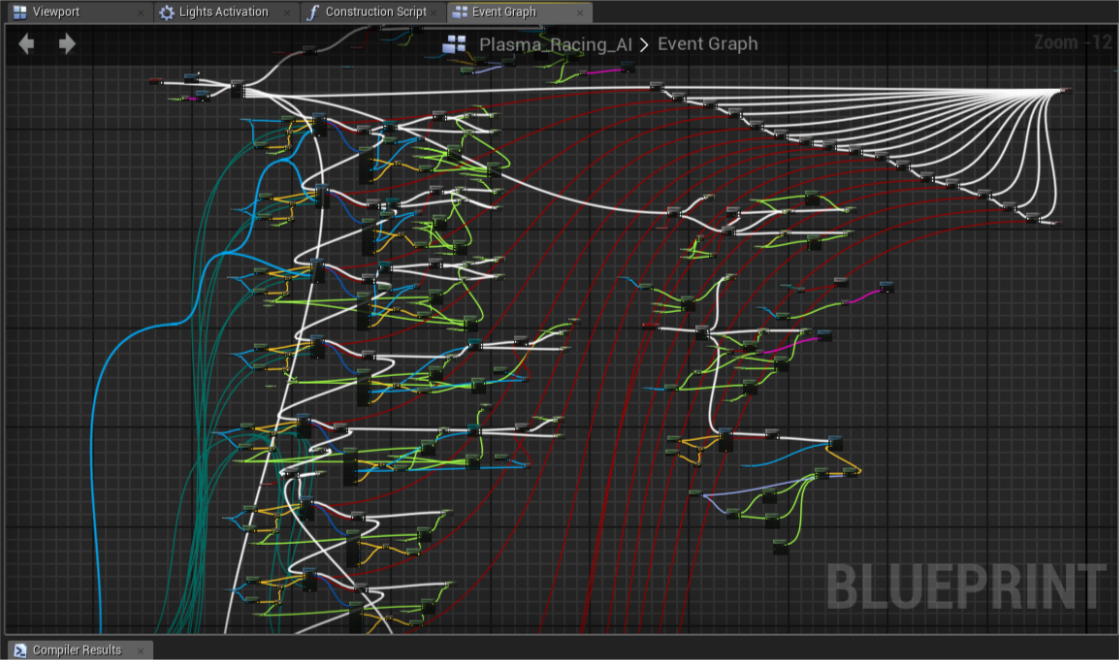Declaring non-dynamic delegates with N (any) amount of parameters.
Since dynamic macros are part of reflection system, they rely on different mechanism, but there is no actual reason why we use _OneParam, _TwoParams etc. on non-dynamic delegates.
If you don’t know what are delegates or not sure how to use them properly, I can recommend having a further read from benui’s awesome article here.
These macros below allow you to declare delegate types without manually typing param count for them:
#define DECLARE_DELEGATE_AnyParam(DelegateName, ...) \
using DelegateName = TDelegate<void(__VA_ARGS__)>;
#define DECLARE_MULTICAST_DELEGATE_AnyParam(DelegateName, ...) \
using DelegateName = TMulticastDelegate<void(__VA_ARGS__)>
// delegate declarations with return types:
#define DECLARE_DELEGATE_AnyParam_RetVal(DelegateName, RetVal, ...) \
using DelegateName = TDelegate<RetVal(__VA_ARGS__)>;
#define DECLARE_MULTICAST_DELEGATE_AnyParam_RetVal(DelegateName, RetVal, ...) \
using DelegateName = TMulticastDelegate<RetVal(__VA_ARGS__)>
Example usage:
// Declare a delegate named FSomeDelegate with given parameters:
DECLARE_DELEGATE_AnyParam(FSomeDelegate, float, int, UObject*, TArray<float>&);
// Declare a multicast delegate named FSomeMulticastDelegate with given parameters:
DECLARE_MULTICAST_DELEGATE_AnyParam(FSomeMulticastDelegate, float, int, UObject*);
void Test()
{
// execute FSomeDelegate:
FSomeDelegate Test;
TArray Array{123.f, 123.f};
Test.Execute(123.f, 12, nullptr, Array);
// execute FSomeMulticastDelegate:
FSomeMulticastDelegate MultiTest;
MultiTest.Broadcast(123.f, 123, nullptr);
}
If you’re not a fan of delegates, you can also prefer the given way to declare non-multicast delegates:
using YourDelegateTypename = TDelegate<void(int, float, double, etc, anyothertype)>;
using YourDelegateTypenameWithReturnType = TDelegate<int(int, float, double, etc, anyothertype)>;
Here is an example:
// if we have a function signature like this:
virtual int32 AnimeGirlsAreReal(const float X, double& Y, const TArray<FVector>& Z);
// this delegate would be compatible with the function above:
using FAnimeGirlsAreRealDelegate = TDelegate<int32(const float, double&, const TArray<FVector>&)>
// example usecase:
void SomeFunction()
{
FAnimeGirlsAreRealDelegate MyDelegate;
TArray<FVector> MyVectorArray;
double OutDouble;
MyDelegate.Execute(1.f, OutDouble, MyVectorArray);
}

